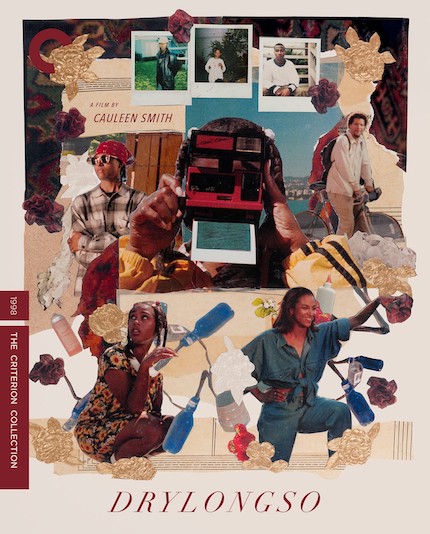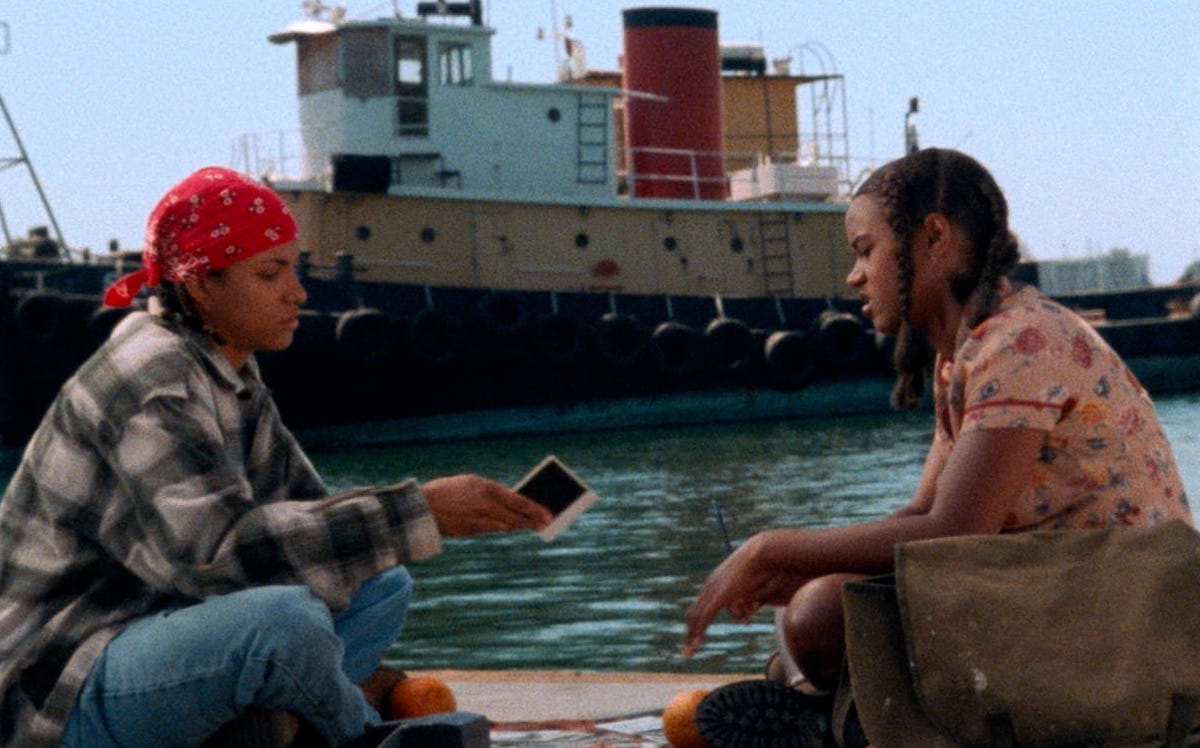DRYLONGSO Blu-ray Review: Serial Killer Stalks Young Black People
Rescued from 1990s obscurity by a sharp new transfer, Cauleen Smith’s DIY feature is a treat to revisit.

Drylongso has never been on my radar. In spite of a buzzy showing in 1999 at Sundance and South By Southwest, it didn't receive a mainstream theatrical release; director Cauleen Smith never made a second feature film. (The jacket essay by film scholar Yasmina Price makes a recurring note of the number of Black women directors in the 1980s and 1990s who share this particular statistic.) Drylongso was memory-holed by a swath of North American cinema obsessives, myself included.
Restored in 4K by the Academy Film Archive, Janus Films and the Criterion Collection (available to purchase on Blu-ray only) and released as spine #1190, Drylongso looks superb on this disc. Skin tones are warm and gorgeous (shot on Fuji stock, per some relevant advice to the director when setting up the film, because "Kodak is racist" when it comes to rendering Black complexions). The Oakland community where Smith and cinematographer Andrew Black shot the film is on bright, inviting display throughout, which plays into the director's artistic project, as lead character Pico (Toby Smith) examines, documents, and ultimately comes home to her community with her art about missing Black lives.
Pico is in a 35mm photography class, but prefers Polaroid ("no negatives," she says; no associated surveillance burdens on her volunteer subjects). She snaps photos of Black men she encounters as she goes about her days because, she says, they are becoming an endangered species. There is something of a thriller quality to Drylongso's spare narrative spine: a serial killer is stalking young Black people and has not been caught.
Pico gets little stability in her chaotic home -- even the lock on her door doesn't keep her mother's loudmouth visitors from fouling her bed -- and only somewhat more support from a stentorian professor (Salim Akil, who co-wrote the film with Smith), who believes in Pico's talent unequivocally, but must continuously guide her back to the rules and contracts of her academic practice.
Her strongest relationship -- and the most beguiling thread of the film -- begins when Tobi (April Barnett) ends up on Pico's porch following a "final" breakup with a possessive boyfriend, Jefferson (Timothy Braggs). Tobi and Pico connect across class lines (Tobi is wealthier) and shared experiences (counting off the number of funerals each has attended this year).
Intriguingly, Tobi begins male-coding her dress and speech -- she can pass for a 15-year-old boy, disappearing into the baggy clothes of 90s hip-hop -- ostensibly to stay off Jefferson's radar, though she goes on to explain that the practice has wider utility, silencing all catcalls and general male harassment. In doing this, we can't help wonder if she has traded the dangers of being a visible Black woman for the alternative, more aggressive danger of the serial killer, whose next victim may be a Black male.
All of this might tend to make Drylongso sound grim or fatalistic, but these threats and tensions seem more patterned into the weave of these womens' lives, a point of acceptance rather than an inherent source of gloom. Pico and Tobi's friendship begins awkwardly but blossoms beautifully; Pico's photographic practice seems haphazard and undisciplined until it blooms into a communal connection point, which pulls her identity and her home into the same giving space. Drylongso is optimistic and centres its lead women, their individuality and their agency and, over time, their care for one another.
Shot on 16mm with the energy and endeavour of a student film, Drylongso feels engaged and current. Director Smith left the narrative film world behind after the film and moved into contemporary art, but joins us on the Criterion release, interviewed by film scholar Michael B. Gillespie. Not having to canvas-survey a larger body of work, the 24-minute master class is a thorough examination of the artistic project of Drylongso and how it came together; Smith has lost none of her passion or intentionality around the work.
Several of her short films are also included on the disc, with an introduction by the director. This, regrettably, forms the remainder of the supplemental material; I'd have loved to see interviews with Smith and Barnett, at least, or some of the other collaborators with whom Smith fashioned the film.
That said, I'm grateful that Drylongso has been pulled forward by this restoration in the first place, when so much of 20th century film is being left further and further behind by limited archiving and the false promises of the streaming era. It's a demonstration model for what the process can do when it's done well.
Drylongso
Director(s)
- Cauleen Smith
Writer(s)
- Salim Akil
- Cauleen Smith
Cast
- Toby Smith
- April Barnett
- Will Power









